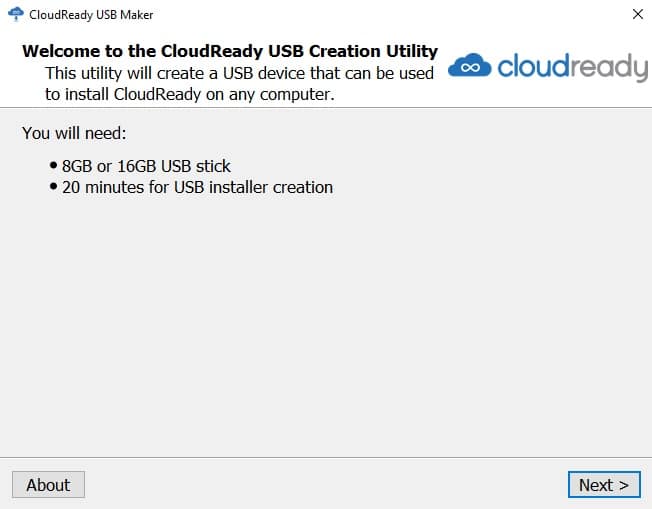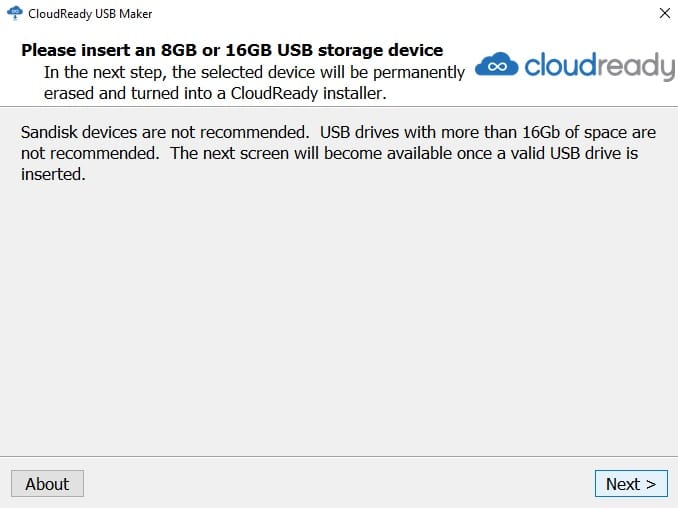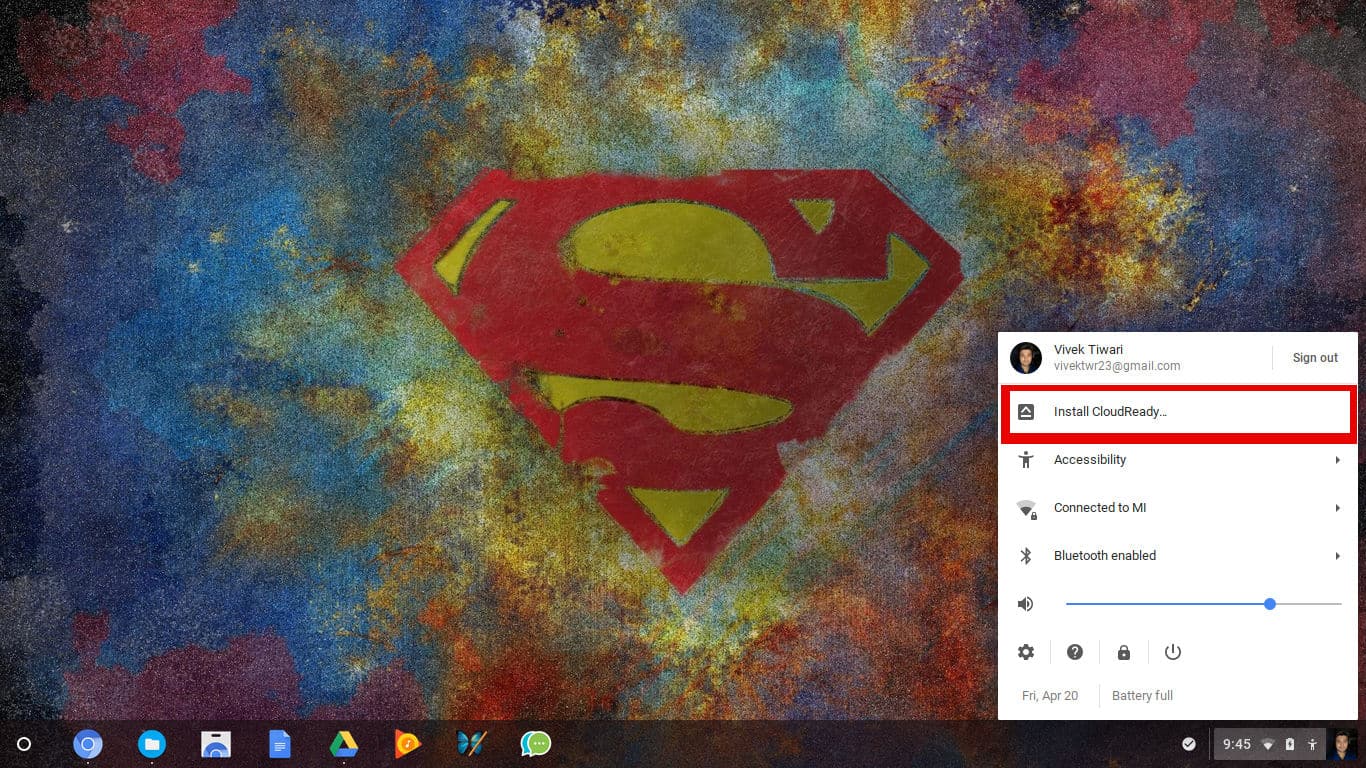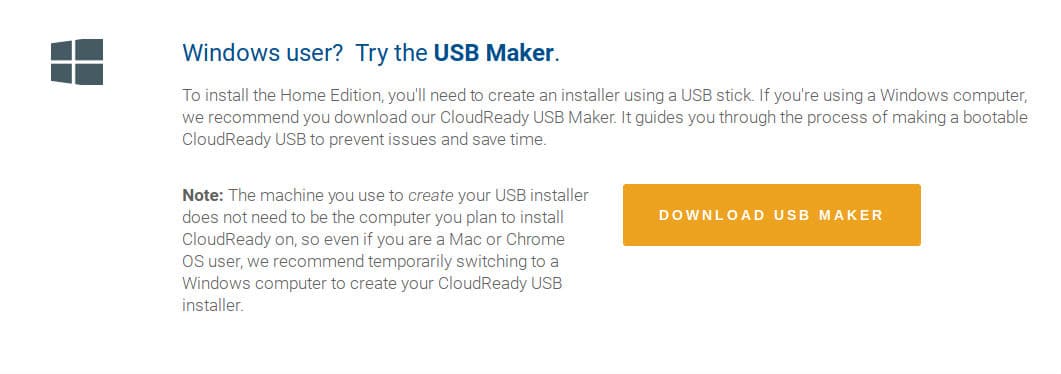Do you have an old computer that can barely keep up with Windows? If you do, you can breathe new life into it if you install Chrome OS. Being based around and on just the Chrome browser, it is lightweight compared to Windows. You won’t be able to do everything that you could on a Windows machine, but at least your computer can do most other things. You can still watch videos, play music, browse the web, edit pictures, and play a bit.
Just don’t expect any AAA titles to run on your machine. Now, we know Google does not release an official Chrome OS build for other devices. That means anyone interested will have to rely on unofficial Chromium OS builds, also not by Google. One of the best ways to install Chrome OS or Chromium OS on a laptop is Cloudready.
Cloudready is Chromium OS with a few additional management features and mainstream hardware support. Neverware sells Cloudready to businesses and schools that want to run Chrome OS on existing hardware. For home users, Cloudready is completely free. For me, something being free is reason enough to get it, but here’s why you should consider it. Older PCs, especially those from the time of Windows XP, can get a new life with a lightweight browser-based OS such as Chromium OS. Instead of running a full-on operating system like Windows, the old hardware only has to run a browser.
Create a Chrome OS installer on a USB
Creating the installer used to be a simple process as it was. Neverware has now made it as simple as it possibly could be. All you have to do is head over to the official website and navigate to the Cloudready Home Edition page. Scroll down and click on DOWNLOAD USB MAKER. Once downloaded, insert your USB drive and run the USB maker. Keep in mind that the USB maker will first download the entire OS and then write it to the USB disk. You can also refer to my dedicated guide on running Chrome OS from a USB drive.
- As will be mentioned on the first page of the USB maker, you will need at least an 8GB or 16GB USB drive to install Cloudready on it. Insert the disk and click Next.

- Select the CPU architecture of your PC. If you have a PC that came with Windows XP, chances are it is based on the 32-bit architecture. Even if you install a 32-bit version on 64-bit hardware, technically it should work. The only problem would be that your system won’t be able to use more than 4GB of RAM.

- Click Next when you’ve selected the right architecture, and then click Next again on the next page. If you haven’t inserted a USB drive yet you won’t be able to click Next here.

- Select your USB drive and click Next again. The installer will now start downloading Cloudready. Immediately after the download is complete, it will start to install it on your drive.
- This process can take a while, even if you have relatively good internet speeds.
Install ChromeOS on your laptop
Now that you have a bootable Chrome OS USB drive, shut down your PC, insert the USB drive, and boot your PC with the USB drive. Make sure you have enabled the requirements in the BIOS to be able to boot from a USB. If you can boot from the USB drive, you will see a bright white screen with the Cloudready logo. After this, you will be asked to log in with your Google ID. You can log in and try out Cloudready or Chromium OS first before installing it. In my experience, though, logging in seems to do something that I can’t exactly point out. The result for me has always been that the installation gets stuck.
- Regardless of your choice about logging in, click on the bottom right corner of the Shelf (taskbar on Chrome OS) and select Install Cloudready…

- On the Window that opens up, select INSTALL CLOUD READY again, and then ERASE HARD DISK AND INSTALL CLOUDREADY. Needless to say, this will erase your entire hard disk and install CloudReady/Chromium OS + benefits on your PC.
- This process is long, and all you’ll see is an animation that does not give you an idea of whether things are moving forward. It can be frustrating to wait, so you should probably go out for a walk or something.
When it is complete, you can reboot your system and pull out the USB Drive. You should see the Cloudready logo on a bright white background when your computer boots up. Now that you have installed Chrome OS on your old laptop or computer, you should also try these must-have apps for Chrome OS.
Read Next: How to Create a Bootable USB on Chromebooks

